19 start with O start with O
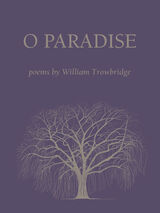
As Howard Nemerov has said in praise of William Trowbridge’s first poetry collection: “he is very much up on the peculiarities of our little world … He is both funny and serious, seriously funny; probably the best, if not the only, way of dealing with the complex predicament.”
Continuing in this third collection of poems to work in the realm of the serio-comic, Trowbridge explores other borderlands—between the tangible world and the intuitive one, between actuality and memory, between consciousness and unconsciousness, between self as flesh and blood and self as ghost.
This is fast-faced, nervy poetry whose witty, vernacular language moves surprisingly toward transcendence.

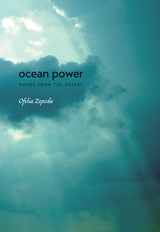
Poet Ofelia Zepeda centers these poems on her own experiences growing up in a Tohono O'odham family, where desert climate profoundly influenced daily life, and on her perceptions as a contemporary Tohono O'odham woman. One section of poems deals with contemporary life, personal history, and the meeting of old and new ways. Another section deals with winter and human responses to light and air. The final group of poems focuses on the nature of women, the ocean, and the way the past relationship of the O'odham with the ocean may still inform present day experience. These fine poems will give the outside reader a rich insight into the daily life of the Tohono O'odham people.
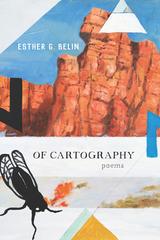
In this long-anticipated collection, Belin daringly maps the poetics of womanhood, the body, institution, family, and love. Depicting the personal and the political, Of Cartography is an exploration of identity through language. With poems ranging from prose to typographic and linguistic illustrations, this distinctive collection pushes the boundaries of traditional poetic form.
Marking territory and position according to the Diné cardinal points, Of Cartography demands much from the reader, gives meaning to abstraction, and demonstrates the challenges of identity politics.

Aflame with desire, the eye conjures, dreams, invents itself, sees what it wants. The eye sees what it is able to see.
Ojo en celo / Eye in Heat brings into sharp relief the limits of our gaze. It shows us what it is to escape the mirror and move beyond mirages. Margarita Pintado Burgos invites us to ponder the impasse while showing us ways to see better, to break the habit of lying, and to confront images along with language.
With devastating clarity, Pintado Burgos’s poems, presented in both Spanish and English, give voice to the world within and beyond sight: the plants, the trees, the birds, the ocean waves, the fruit forgotten in the kitchen, the house’s furniture. Light takes on new dimensions to expose, manipulate, destroy, and nourish. Alejandra Quintana Arocho’s sensitive English translation renders the stark force of these poems without smoothing over the language of the original.
This collection is for anyone who has felt the weight of beauty that remains hidden. It is for those who have left behind a mother, a father, a country. It is for those who know that there is no way out of the poem, for those who have had to live off a house of words and need that house to be as real as possible. Pintado Burgos writes as a woman, exile, daughter, sister, lover, and artist empowered by the restorative potential of the creative phenomenon.
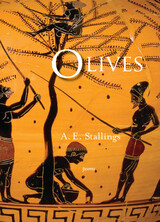
Finalist, 2012 NBCC Award in the Poetry category
Recipient, 2011 MacArthur Fellowship and Guggenheim Fellowship
A. E. Stallings has established herself as one of the best American poets of her generation. In addition to a lively dialogue with both the contemporary and ancient culture of her adopted homeland, Greece, this new collection features poems that, in her inimitable voice, address the joys and anxieties of marriage and motherhood. This collection builds on previous accomplishments with some longer poems and sequences of greater philosophical scope, such as “On Visiting a Borrowed Country House in Arcadia.” Stallings possesses the rare ability to craft precise poems that pulsate with deeply felt emotion. Like the olives of the title, the book embraces the bitter but savory fruits of the ancient tree, and the tears and sweetness we harvest in our temporary lives. These poems show Stallings in complete command of her talent, able to suggest the world in a word.
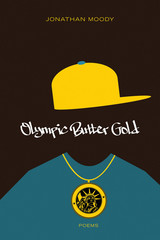
Jonathan Moody grew up during the Golden Ages of hip-hop and listened to rap that was as adventurous and diverse as his military upbringing. When rap’s Golden Ages expired, the music’s innovativeness and variety diminished. Moody’s second book, Olympic Butter Gold, winner of the 2014 Cave Canem Northwestern University Press Poetry Prize, responds to Chuck D’s claim that "if there was a HIP-HOP or Rap Olympics, I really don’t think the United States would get Gold, Silver or Brass." From the poem "Opening Ceremony," in the voice of a heroin addict struggling to use Lady Liberty’s torch to cook "The American Dream," to "Dear 2Pac," an autobiographical account of teaching Tupac Shakur’s poetry to engage high school students indifferent to literature, Moody shares a worldview that is simultaneously apocalyptic and promising.

Finalist, Sheikh Zayed Book Award
“With extraordinary linguistic range, Calderwood brings us the voices of Arabs and Muslims who have turned to the distant past of Spain to imagine their future.”
—Hussein Fancy, Yale University
How the memory of Muslim Iberia shapes art and politics from New York and Cordoba to Cairo and the West Bank.
During the Middle Ages, the Iberian Peninsula was home not to Spain and Portugal but rather to al-Andalus. Ruled by a succession of Islamic dynasties, al-Andalus came to be a shorthand for a legendary place where people from the Middle East, North Africa, and Europe; Jews, Christians, and Muslims lived together in peace. That reputation is not entirely deserved, yet, as On Earth or in Poems shows, it has had an enduring hold on the imagination, especially for Arab and Muslim artists and thinkers in Europe, the Middle East, and North Africa.
From the vast and complex story behind the name al-Andalus, Syrians and North Africans draw their own connections to history’s ruling dynasties. Palestinians can imagine themselves as “Moriscos,” descended from Spanish Muslims forced to hide their identities. A Palestinian flamenco musician in Chicago, no less than a Saudi women’s rights activist, can take inspiration from al-Andalus. These diverse relationships to the same past may be imagined, but the present-day communities and future visions those relationships foster are real.
Where do these notions of al-Andalus come from? How do they translate into aspiration and action? Eric Calderwood traces the role of al-Andalus in music and in debates about Arab and Berber identities, Arab and Muslim feminisms, the politics of Palestine and Israel, and immigration and multiculturalism in Europe. The Palestinian poet Mahmud Darwish once asked, “Was al-Andalus / Here or there? On earth … or in poems?” The artists and activists showcased in this book answer: it was there, it is here, and it will be.
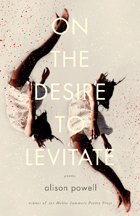
On the Desire to Levitate is the first collection of poems by Alison Powell. This striking collection includes vivid, unflinching meditations on aging, mythology, poetry, and family. In tight, elegant lines that alternate between homage and elegy, these poems explore known subjects with a rebellious eye: a defeated Hercules and a bitter Eurydice, a sympathetic Lucifer, and generations of adolescent girls as mythical adventurers moving within a beloved but confining Midwest. Yet in Powell’s skillful hands, hardship never overtakes: as judge Charles Hood writes, “There’s often a delicious humor in this work, and always a deep and lasting integrity.”
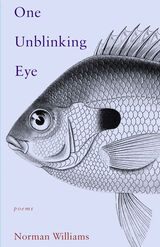
The poems in One Unblinking Eye cast a steady and serious gaze at life outside the beltways. Whether testifying at a prayer meeting in Indiana, tramping the backwoods of northern New England, or working on an oil derrick in the Gulf, the inhabitants of these poems live on the margins of society. “They are the left-behind, odd-manneredones/Who speak in starts,” Norman Williams writes of the last residents of a West Virginia mining town. Describing the woods of central Maine, he speaks of “lives … scraped from sides/Of deer and garden plots; where double-wides,/On concrete pads abut a hard-pan road.”
It is the art of these poems to convince the reader that these lives matter. There is desperation here, and madness, but there is an equal measure of determination and faith. In one poem, Mr. Williams writes of a fisherman haunted by his daughter’s death, who “casts his line/In hopes a flash and strike will draw him back.” These words describe the poet’s method as well. The work in this collection is built on a supple metrical foundation; it is filled with glancing rhymes and wordplay; and it is touched off by striking images. It is, in other words, composed with care, and it richly rewards a careful reading.
Norman Williams writes in Burlington, Vermont, where he works as an attorney. His first book, The Unlovely Child, was published by Alfred A. Knopf to enthusiastic reviews. Anthony Hecht wrote that “the voice of these poems is marvelously modulated, low-key in its acceptances, modest in its exultations, steady and unintoxicated in its long vision. It is my fixed conviction that with his first book he has fashioned a landmark in our literature, and sounded a uniquely American note with beautiful certainty.”
With his second book, more than fifteen years in the making, Norman Williams reafirms the truth of that assessment.
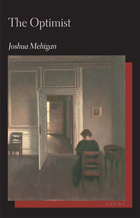
In Joshua Mehigan’s award-winning poetry, one encounters a lucid, resolute vision driven by an amazing facility with the metrical line. Most of the poems in The Optimist unapologetically employ traditional poetic technique, and, in each of these, Mehigan stretches the fabric of living language over a framework of regular meter to produce a compelling sonic counterpoint.
The Optimist stares at contemporary darkness visible, a darkly lit tableau that erases the boundary between the world and the perceiving self. Whether narrative or lyric, dramatic or satirical, Mehigan’s poems explore death, desire, and change with a mixture of reason and compassion.
In choosing The Optimist for the Hollis Summers Poetry Prize, final judge James Cummins, wrote:
“The world is given its due in these poems, but its due is the subjective voice making ‘objective’ reality into the reality of art. To do this Mehigan accesses a tradition of voices—the echoes in The Optimist are, to name a few, of Frost, Robinson, Kees, and Justice; and more in terms of point of view, Bishop and Jarrell—to form with great integrity his own. It isn’t that Mehigan is concerned more with what’s outside himself than inside; nor merely that he travels the highway between the two with such humility and grace. It’s also that these voices, this great tradition, infuses his line with what the best verse, metrical or free, must have: wonder.”

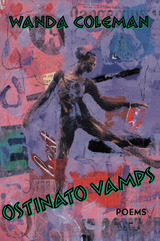
Linguistically daring, lyrically breathtaking, stylistically bold, these poems both explore familiar territory and shatter stereotypes. Life is difficult, often unfair, but it belongs to the living, as Coleman reminds us in no uncertain terms. Racing between an earthy eroticism and fatalistic despair, filled with humor and tragedy, these poems are alive. They breathe. They challenge us even as they reward us for seeking the truth.

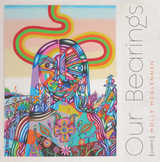
While working with both traditional and contemporary form, McGlennen’s unique use of space and rhythm creates poetry that is both captivating and accessible. Our Bearings does not attempt to speak for a population; rather it offers vibrant stories and moments that give voice to pieces of a large and complex tapestry of experiences. Through keen observation and a deep understanding of Native life in Minneapolis, McGlennen has created a timely collection that contributes beautifully to the important conversation about contemporary urban Native life in North America and globally.
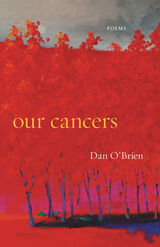
On the fourteenth anniversary of 9/11—an event that caused their downtown apartment to become “suffused with the World Trade Center’s carcinogenic dust”—Dan O’Brien’s wife discovers a lump in her breast. Surgery and chemotherapy soon follow, and on the day of his wife’s final infusion, O’Brien learns of his own diagnosis. He has colon cancer and will need to undergo his own intensive treatment over the next nine months.
Our Cancers is a compelling account of illness and commitment, of parenthood and partnership. This spare and powerful sequence creates an intimate mythology that seeks meaning in illness while also celebrating the resilience of sufferers, caregivers, and survivors.
As O’Brien explains in an introduction, “The consecutiveness of our personal disasters, with a daughter not yet two years old at the start of it, was shattering and nearly silencing. At hospital bedsides, in hospital beds myself, and at home through the cyclical assaults of our therapies, these poems came to me in fragments, as if my unconscious were attempting to reassemble our lives, our identities and memories . . . as if I were in some sense learning how to speak again.”

Because of the intense connection we feel with music, we can remember song lyrics even when we have forgotten the details of our personal lives—even when all else fails, a song can transport us back. In this sense, a song is capable of suspending time. Drawing on this perspective, Peter Twal’s playful, inventive, and wickedly sentimental debut collection takes a set of song lyrics (LCD Soundsystem’s “All My Friends”) and treats them as an artifact of memory itself, blurring the line between self and other, between past and present.
Each poem in Our Earliest Tattoos acts as a passageway from one lyric in the song to the next—the author pries these lyrics open like doors and builds whole rooms between them. As readers progress through the house he builds, they hear the song as the soundtrack to their discoveries: in one room, of party leftovers, and in another, an exploding museum of natural history.
Like memory, the characters in these poems are both present and absent. Sustained by smart phones, they are in constant communication despite always seeming to have just left the room. In one poem, the lonely Mars rover thumbs constantly through pictures on its phone; in another, Death trades in his scythe for a cell phone he uses throughout the book to send disquieting text messages. God, too, is text-happy—when the speaker asks, “Does the universe even care?” God texts back to say, “Don’t forget the twelve / bucks you owe me this year.”
Wise, funny, and wholly original, the long-lined sonnets that make up Our Earliest Tattoos celebrate the surreal, embracing the nature of memory as fragmented—as is visible in the fractured nature of the lines—and inherently bizarre.
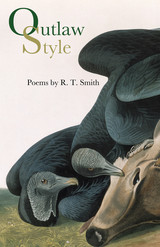
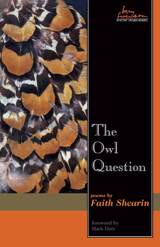
READERS
Browse our collection.
PUBLISHERS
See BiblioVault's publisher services.
STUDENT SERVICES
Files for college accessibility offices.
UChicago Accessibility Resources
home | accessibility | search | about | contact us
BiblioVault ® 2001 - 2024
The University of Chicago Press









